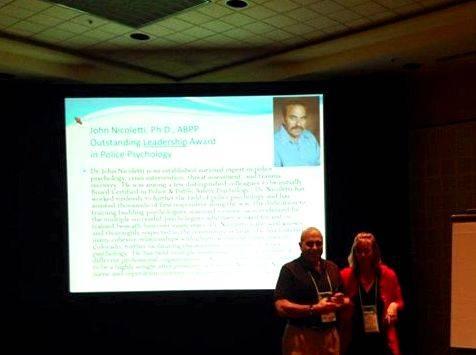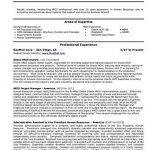Pre-employment Psychological Evaluation Services Guidelines
Ratified by the IACP Police Psychological Services Section
Los Angeles, California, 2004
The following statements are guidelines for professional practice in the area of pre-employment psychological evaluations of candidates for public safety positions. These positions include but are not limited to positions where incumbents have arrest authority or the legal authority to detain and confine individuals. These guidelines are presented as a recommended professional policy for public safety agencies and individuals who are charged with the responsibility of conducting defensible preemployment psychological screening programs. Psychologists must adhere to ethical principles and standards for practice, including the standards of the American Psychological Association.
- Pre-employment psychological assessments should be used as one component of the overall selection process.
Before conducting their own clinical assessments of candidates, practitioners should be familiar with the research literature available on psychological testing for public safety positions, as well as the state and federal laws relevant to this area of practice, including the Americans with Disabilities Act (ADA).
Except as allowed or permitted by law, only licensed or certified psychologists trained and experienced in psychological test interpretation and law enforcement psychological assessment techniques should conduct psychological screening for public safety agencies.
Data on attributes considered most important for effective performance in a particular position should be obtained from job analysis, interview, surveys, or other appropriate sources.
Efforts should be made to provide agency administrators with information regarding the benefits and limitations of psychological assessment procedures so that realistic goals may be set.
Provisions should be made for the security of all testing materials (e.g. test booklets). Provisions should also be made for the security of, access to, and retention of the psychological report and raw data.
- A test battery including objective, job-related, validated psychological instruments should be administered to the applicant. It is preferable that test results be available to the evaluator before screening interviews are conducted.
Written tests selected should be validated for use with public safety candidates.
If mail-order, Internet-based, or computerized tests are employed, the licensed or certified psychologist conducting the follow-up interview should verify and interpret individual results.
The pre-employment psychological evaluation must be conducted in accordance with the Americans with Disabilities Act (ADA). A psychological evaluation is considered medical if it provides evidence that could lead to identifying a mental or emotional disorder or impairment as listed in the DSM-IV, and therefore must only be conducted after the applicant has been tendered a conditional offer of employment. Personality tests and other methods of inquiry that are not medical by the above definition and that do not include specific prohibited topics or inquiries may be conducted at the pre-offer stage. However, these assessments are alone not capable of determining a candidate’s emotional stability and therefore would not constitute an adequate pre-employment psychological evaluation.
- Individual, face-to-face interviews with candidates should be conducted before a final psychological report is submitted.
A semi-structured, job-related interview format should be employed with all candidates.
Interviews should be scheduled to allow for sufficient time to cover appropriate background and test results verification.
- Public safety agency administrators directly involved in making employment decisions should be provided with written reports. These reports should evaluate the suitability of the candidate for the position based upon an analysis of all psychological material including test data and interview results. Reports to the agency should contain a rating and/or recommendation for employment based upon the results of the screening, justification for the recommendation and/or rating, and any reservations that the psychologist might have regarding the validity or reliability of the results.
While a clinical assessment of overall psychological suitability and stability may be made, clinical diagnoses or psychiatric labeling of candidates should be avoided when the goal of the assessment is to identify candidates whose psychological traits may adversely affect specific job performance. In all cases, the screening should be focused on an individual candidate’s ability to perform the essential functions of the position under consideration.
Specific cut-off scores should be avoided, unless there is clear statistical evidence that such scores are valid and have been cross-validated in research studies by the test developer or in the agency where they will be used. If cut-off scores are used, the report should acknowledge their use and the basis for using the specific cut-off level. Conclusions concerning a candidate’s qualifications should be based on consistencies across data sources rather than on a single source.
Clear disclaimers should be made so that reports evaluating current emotional and behavioral traits or suitability for a public safety position will not be deemed valid after a specific period of time.
- Care should be taken when using pre-employment test results for purposes other than making pre-employment decisions and for monitoring the candidate during the probationary period. Follow-up research may be conducted with agency approval and where individual identities are protected. Pre-employment reports should not be used for positions not expressly considered by the psychologist at the time of the evaluation.
Continuing collaborative efforts by the hiring agency and evaluating psychologist should be made to validate final suitability ratings using behavioral criteria measures.
Each agency should maintain adverse impact analyses in order to detect any discriminatory patterns of the psychological screening program.
Psychologists should be prepared to defend their procedures, conclusions, and commendations if a decision based, even in part, on psychological results is challenged.





 Content writing services in delhi
Content writing services in delhi Cv writing services in kenya
Cv writing services in kenya Roy cable quality underwriting services ltd
Roy cable quality underwriting services ltd Contract administratif et service public dissertation definition
Contract administratif et service public dissertation definition Usagers du service public dissertation proposal
Usagers du service public dissertation proposal






